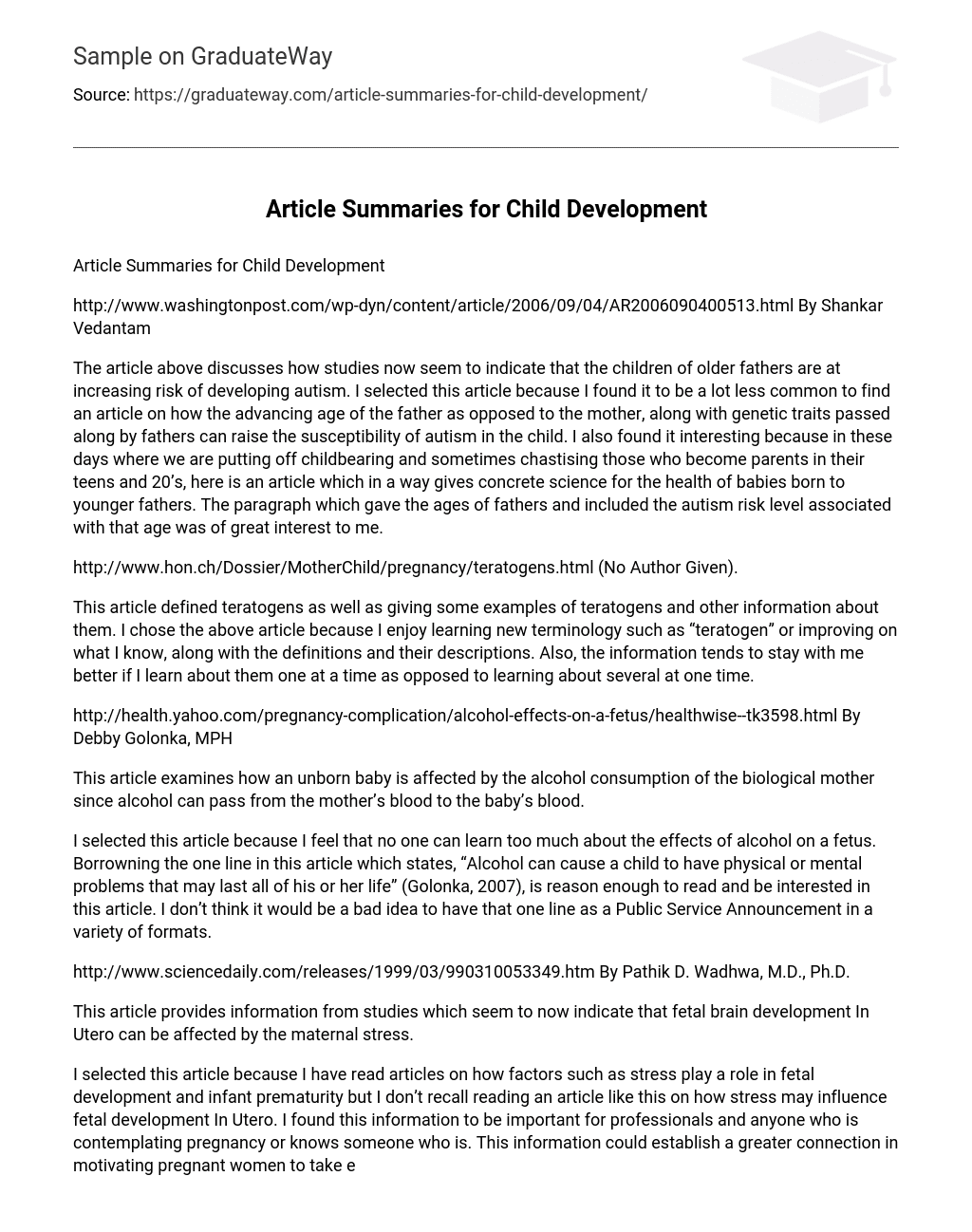http://www.washingtonpost.com/wp-dyn/content/article/2006/09/04/AR2006090400513.html By Shankar Vedantam
The article above discusses how studies now seem to indicate that the children of older fathers are at increasing risk of developing autism. I selected this article because I found it to be a lot less common to find an article on how the advancing age of the father as opposed to the mother, along with genetic traits passed along by fathers can raise the susceptibility of autism in the child. I also found it interesting because in these days where we are putting off childbearing and sometimes chastising those who become parents in their teens and 20’s, here is an article which in a way gives concrete science for the health of babies born to younger fathers. The paragraph which gave the ages of fathers and included the autism risk level associated with that age was of great interest to me.
http://www.hon.ch/Dossier/MotherChild/pregnancy/teratogens.html (No Author Given).
This article defined teratogens as well as giving some examples of teratogens and other information about them. I chose the above article because I enjoy learning new terminology such as “teratogen” or improving on what I know, along with the definitions and their descriptions. Also, the information tends to stay with me better if I learn about them one at a time as opposed to learning about several at one time.
http://health.yahoo.com/pregnancy-complication/alcohol-effects-on-a-fetus/healthwise–tk3598.html By Debby Golonka, MPH
This article examines how an unborn baby is affected by the alcohol consumption of the biological mother since alcohol can pass from the mother’s blood to the baby’s blood.
I selected this article because I feel that no one can learn too much about the effects of alcohol on a fetus. Borrowning the one line in this article which states, “Alcohol can cause a child to have physical or mental problems that may last all of his or her life” (Golonka, 2007), is reason enough to read and be interested in this article. I don’t think it would be a bad idea to have that one line as a Public Service Announcement in a variety of formats.
http://www.sciencedaily.com/releases/1999/03/990310053349.htm By Pathik D. Wadhwa, M.D., Ph.D.
This article provides information from studies which seem to now indicate that fetal brain development In Utero can be affected by the maternal stress.
I selected this article because I have read articles on how factors such as stress play a role in fetal development and infant prematurity but I don’t recall reading an article like this on how stress may influence fetal development In Utero. I found this information to be important for professionals and anyone who is contemplating pregnancy or knows someone who is. This information could establish a greater connection in motivating pregnant women to take even better care of themselves.
http://www.birthpsychology.com/lifebefore/earlymem.html By David B. Chamberlain, Editor
This article provides evidence to place the beginnings of memory as far back as prenatal or first years of life as opposed to how it once was thought to begin approximately three years of age. I chose this article because I found the information on prenatal memory and even more specifically on how to play the “Kick Game” to be fascinating. The parents touch a different part of the mother’s abdomen and encourage the baby to “kick” wherever the parents touch the mother’s abdomen and the baby does. This article helped me to see how we often disregard the developing infant as being capable of doing such things until they are outside of the womb.





